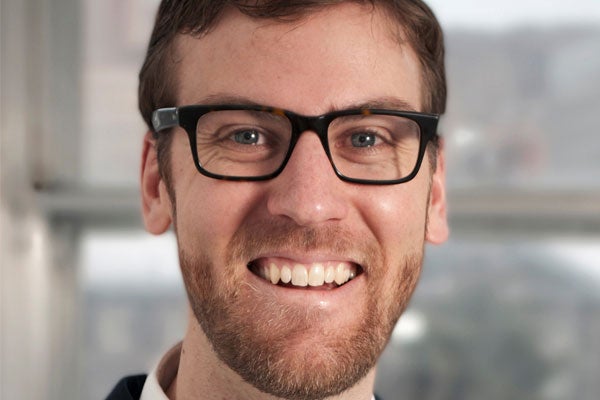
Religion, states and the politics of refugee policy
Published: May 28, 2014
A doctoral student in the Department of Political Science at the University of Toronto, Geoffrey Cameron examines the influence of religious communities on the development of refugee policy and subsequent tensions between domestic policy and the international refugee regime.
Now, Cameron is also one of eight members of the U of T community receiving a prestigious Pierre Elliott Trudeau Foundation scholarship this year. (Read about the four students and four alumni named Trudeau scholars in 2014.)
Tell us about your research project and its central idea.
My research examines the roles religious communities have played in the development of refugee policies since World War II. In recent history, states have often been reluctant to accept refugees because they are unwanted – they are perceived to be a social and economic liability. Religious communities, in some cases due to their own histories, and often because of their teachings, have frequently advocated for more generous admissions policies based on humanitarian obligation. I want to understand why and how religious communities have been effective at influencing refugee policies, and what the implications of this influence have been.
What led you to choose this research project in particular?
Growing up in the Baha’i community, I had many friends whose parents came to Canada from Iran to escape revolutionary violence that targeted Baha’is. Canada offered them protection when their home country had made them stateless. These experiences stimulated an interest in human rights and the politics of refugee policies, leading to questions of why there is still such variety in the refugee protections extended by states. At the same time, I am also interested in the role of religion in the public sphere and how religion is capable of presenting a special kind of moral and ethical critique of injustice. I think that refugee policy is an area where religion has had some influence, and I want to understand that better.
What is new or surprising about your research?
My research is still at a very preliminary stage, but what is most surprising to me is how little has been written in this area. From my knowledge of the history of Canadian immigration policy, however, it is quite clear that Jewish organizations, the Mennonite Central Committee, the Catholic Church, United Church, the Ismaili community, and others have all played influential roles in the development of thinking about Canada’s obligations to refugees. I suspect this is the case in other countries too, but that will require more research.
In your opinion, who will most benefit from your findings?
I think that the main purpose of research is to generate knowledge and help us to understand our society, so that we can work more effectively to improve it. In that sense, all of those who want to see states develop more generous and ethical policies towards refugees will benefit from my research.
Within the next three to five years, what impact could your research have on the Canadian public policy debate?
I hope my research can make a contribution toward crafting more ethical, humane, and rational immigration and refugee policies that will make Canada a model for the rest of the world.



